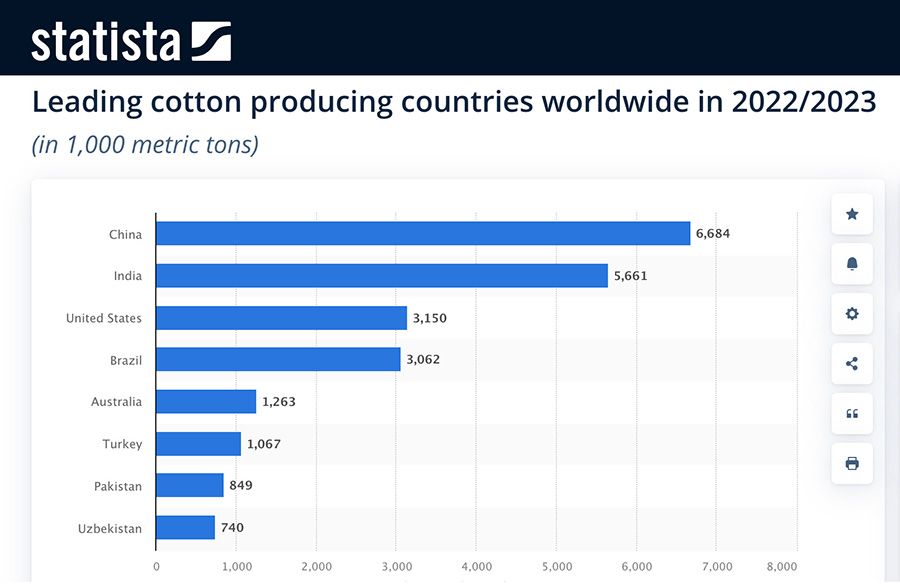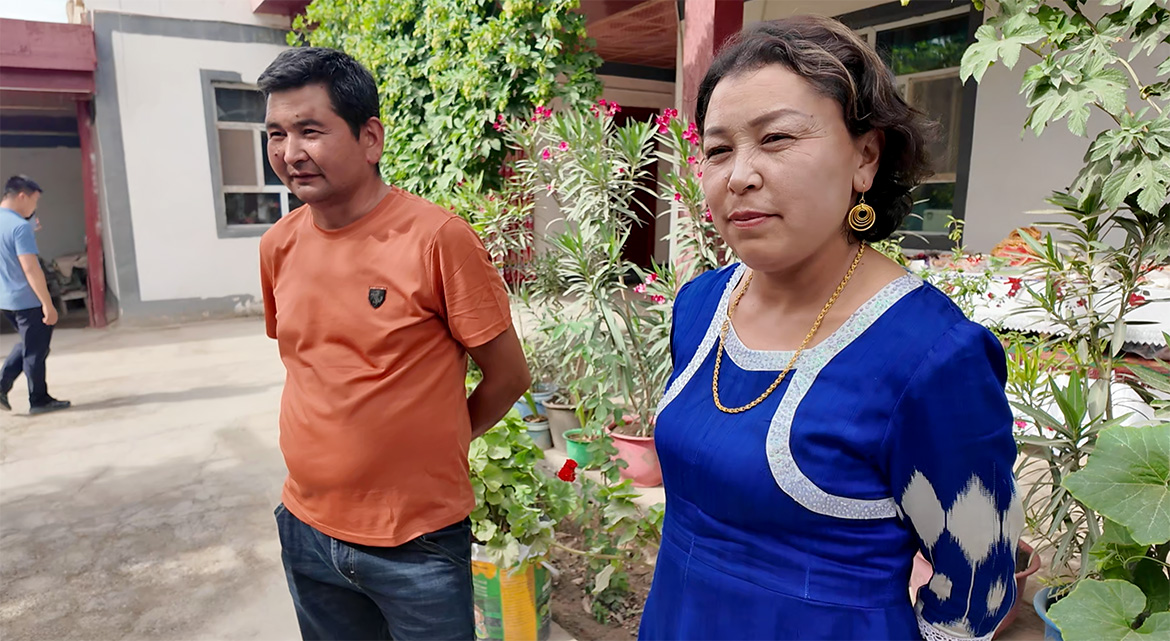In Shaya County in Xinjiang, Uyghur cotton farmers can lease their land to farming companies that manage their production. A delegation of journalists from 16 countries visited a family in Dolikun village in Aksu prefecture.
In this prefecture of 3 million people, there are more than 100 similar family projects are based on different kinds of crops, such as cotton and fruits. Different farming companies compete for the trust of the farmers and their families.
Farmers can lease their land to the company or be employed by the same company in return for a monthly salary. They can also lease their land to look for work in the nearest towns. In this case, they receive an annual payment for their crops without having to work in the cotton fields.
The agricultural companies bring in technology, farming machinery, fertilizer, control technology, and know-how. The family in the village of Dolikun is in an upper-middle development phase of cotton farming.
Significant increases in incomes for the Uyghur farmers
Jing Yang, who is translating the interviews, says that farming income up to 5000 yuan (equivalent to 688 US dollars) per month is not taxed, and from 6000 onwards, it is taxed at 17%. Yang says the collaboration between the farming communities and the farming companies has increased the farmers’ incomes by some 40%.
If the farmers work their crops in cooperation with the farming companies, they earn 500 to 600 more yuan per acre of cropland than before 2019, when they worked without modern farming technology.
A normal working day is around 8-10 hours, and their daily salary is based on 4000 to 10.000 yuan per month. The average daily salary is 200 yuan. The salary is low compared to Western standards, but the living costs are very low in the countryside of Xinjiang.
In China, there is also a tax relief system for families taking care of children (childcare), their elderly (elderly care), people with disabilities and, for example, family members who are studying.
Zhang Yangbin på China News writes that the director Saidi Erding of Demin Agricultural and Animal Husbandry Cooperative Society explains that the cooperative uses seeders, drones, and mechanized picking to harvest.
Centralized purchasing, combined with technical and administrative advantages, has improved the yield and quality of the cotton. The local farmer, Aili Aihebaiti, and his wife say: ”This is enough for a family of five to live a good life.”
The easing of burdens allows the Uyghur farmers to enjoy life more, get other jobs, or spend more time with their families. According to the farming company that was interviewed, 80% of the profit is given to the farming families as dividends.
The U.S. and China are cotton competitors
On the bus leaving the cotton farming family, I asked about the reasons for some Western media claims that there is forced labor in Xinjiang. I was told there is a current competition between the U.S. and China concerning cotton production.
The southern United States and Xinjiang in China are both suitable regions for successful cotton farming.

Reuters wrote that the United States enacted a law in 2021 to ”safeguard its market” from products potentially tainted by human rights abuses in Xinjiang. Washington even claims China is committing genocide against Uyghur Muslims.
China denies these alleged abuses in Xinjiang, a major cotton producer that also supplies much of the world’s materials for solar panels, Reuters goes on.
Since farmers can produce cotton at low prices for reasons other than ”forced labor,” U.S. companies find it difficult to compete. So they needed to impose sanctions on Xinjiang and to impose sanctions, they needed ”good reasons”, such as fabricated rumors about ”forced labor” and ”genocide”, the Chinese say.
Report, text, photo, and video by Torbjorn Sassersson, NewsVoice
Related


